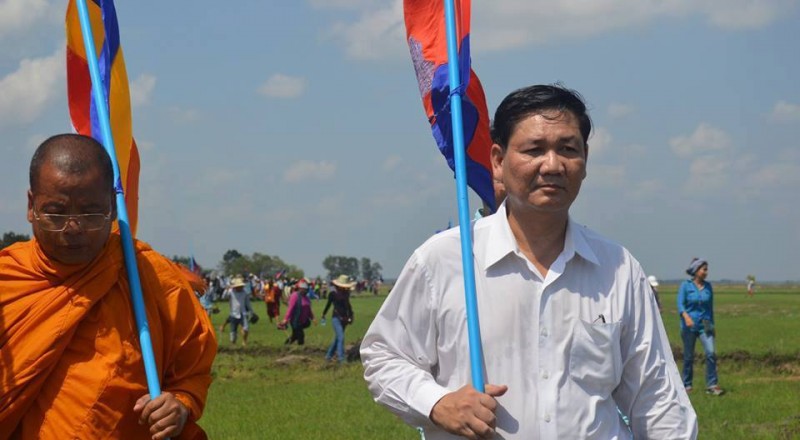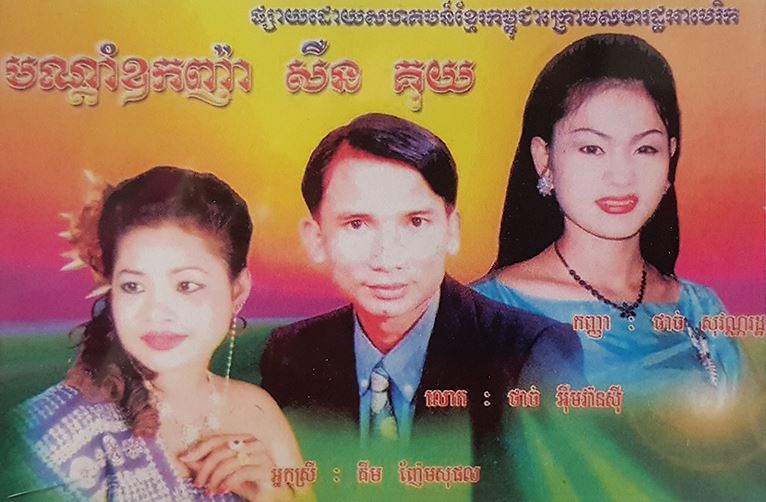What are Human Rights? តើអ្វីជាសិទ្ធិមនុស្ស?
ថ្ងៃសុក្រ ១៥កើត ពេញបូណ៌មី ថ្ងៃសីល ថ្ងៃវិសាខបូជា ខែពិសាខ ឆ្នាំវក អដ្ឋស័ក ព.ស.២៥៥៩ ត្រូវនឹងថ្ងៃទី២០ ខែឩសភា គ.ស.២០១៦
Fri the 15th Full Moon of Visakha B.E.2559, May 20, A.D.2016 Year of the Monkey
Download Universal Declaration of Human Rights in Khmer: UDHR_Khmer
Download Universal Declaration of Human Rights in English: UDHR_English
 Human rights are rights that belong to all human beings, whatever our nationality, place of residence, sex, national or ethnic origin, colour, religion, language, or any other status. We are all equally entitled to human rights, without discrimination.
Human rights are rights that belong to all human beings, whatever our nationality, place of residence, sex, national or ethnic origin, colour, religion, language, or any other status. We are all equally entitled to human rights, without discrimination.
Universal human rights are often expressed and guaranteed by law, in the form of international treaties and other sources of international law. International human rights law lays down obligations of Governments to act in certain ways or to refrain from certain acts, in order to promote and protect human rights and fundamental freedoms of individuals or groups.
Human rights cover civil and political rights (such as the right to life, equality before the law and freedom of expression), economic, social and cultural rights (such as the rights to work, social security and education), and collective rights (such as the rights to development and self-determination). These different categories of rights are all indivisible, interrelated and interdependent.
Human rights laws
The key text for human rights is the Universal Declaration on Human Rights, created in 1948. <read it here>The core human rights treaties are:
The International Covenant on Civil and Political Rights (ICCPR), which Cambodia ratified in 1992
The International Covenant on Economic, Social and Cultural Rights (ICESCR) which Cambodia ratified in 1992
The Convention Against Torture and Other Cruel, Inhuman or Degrading Treatment or Punishment (CAT) which Cambodia ratified in 1992
The International Convention on the Elimination of All Forms of Racial Discrimination (ICERD) which Cambodia ratified in 1993
The Convention on the Elimination of All forms of Discrimination Against Women (CEDAW) which Cambodia ratified in 1992
The Convention on the Rights of the Child (CRC) which Cambodia ratified in 1992
The Convention on the Rights of Persons with Disabilities (CMW) which Cambodia has signed but not ratified
The Convention on the Rights of Migrant Workers (CMW) which Cambodia has not ratified
The Convention on Enforced Disappearances (ICED) which Cambodia has not ratified
All States have ratified at least one, and 80% of States have ratified four or more, of the core human rights treaties, reflecting consent of States which creates legal obligations for them and giving concrete expression to universality. Some fundamental human rights norms enjoy universal protection by customary international law across all boundaries and civilizations.
All States have ratified at least one, and 80% of States have ratified four or more, of the core human rights treaties, reflecting consent of States which creates legal obligations for them and giving concrete expression to universality. Some fundamental human rights norms enjoy universal protection by customary international law across all boundaries and civilizations.
Human rights should not be taken away, except in specific situations and according to due process. For example, the right to liberty may be restricted if a person is found guilty of a crime by a court of law.
Rights and Responsibilities
Human rights entail both rights and responsibilities. States assume responsibilities and duties under international law to respect, to protect and to fulfill human rights. States must refrain from interfering with or curtailing the enjoyment of human rights, must protect individuals and groups against human rights abuses, and must take positive action to facilitate the enjoyment of basic human rights. Each human being also has both rights and responsibilities. While we are entitled our human rights, we should also respect the human rights of others.
Related
សូមគាំទ្រឧបត្ថម្ភ សហគមន៍ខ្មែរក្រោម Support KKC
សូមអរគុណដ៏ជ្រាលជ្រៅចំពោះសប្បុរសជននូវវិភាគទានទាំងនេះ។
We’re On Facebook

Sign in
Click here to reload the page over ssl.




